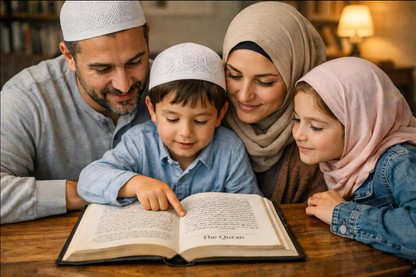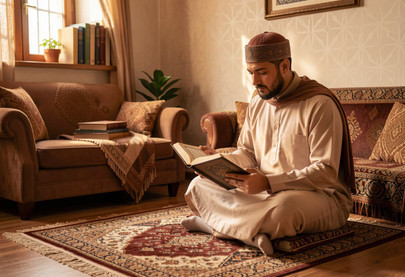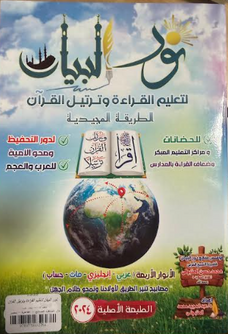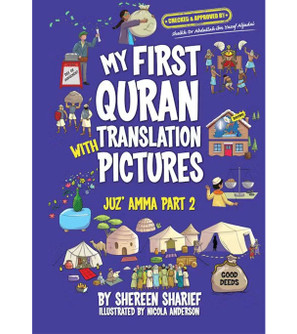Mawlid al Nabi: What It Means and How Muslims and Converts Can Celebrate
Every year, Muslims around the world come together to commemorate one of the most important days in history: the birth of the Prophet Muhammad ﷺ. This occasion, known as Mawlid al Nabi, is not merely a cultural tradition but a spiritual reminder of the Messenger of Allah, whose life and teachings continue to guide humanity. The phrase Mawlid al Nabi translates to “the birth of the Prophet,” and its observance is rooted in gratitude and love for the man who was sent as a mercy to all the worlds.
The way Muslims celebrate Mawlid al Nabi varies. In many countries, mosques and communities organize gatherings for Qur’an recitation, remembrance of the Prophet’s life, and poetry in his honor. Families may share meals, offer charity, or engage in study circles. These practices are not about festivity in the modern sense but about drawing closer to Allah by honoring His Messenger.
For a Muslim convert, this day can feel unfamiliar. Unlike Muslims raised in the faith who often learn the customs from a young age, converts may be navigating the meaning and practices for the first time. The key is understanding that the purpose of Mawlid al Nabi is to strengthen faith, reflect on the Prophet’s example, and nurture a deeper connection to the Muslim community. Accessible resources like The Little Muslim Book of Mawlid offer an introduction for both families and converts who want to understand the essence of this occasion.
Reciting the Qur’an is a central way Muslims celebrate Mawlid al Nabi. Some choose to focus on chapters that emphasize Allah’s mercy and guidance, while others read long passages in community settings. For converts still learning, even reciting short surahs or listening to online recitations is meaningful. Tools like the Tajweed Qur’an Surah al-Baqarah help readers pronounce words correctly, making the experience more spiritually rewarding.
Studying the Prophet’s biography (seerah) is another way to connect with the meaning of Mawlid al Nabi. His life is filled with lessons on patience, compassion, justice, and devotion. For converts especially, exploring how the Prophet supported and encouraged new Muslims during his lifetime can offer both comfort and practical guidance. Resources such as Key to al-Fatiha: Understanding the Basic Concepts help deepen understanding of the Qur’an that shaped his mission, creating a stronger link between daily prayer and his teachings.
How Muslims and Converts Can Celebrate Mawlid al Nabi
While Mawlid al Nabi may look different across cultures, the essence of the celebration remains universal: love for the Prophet and a commitment to his message. For Muslims who have grown up with these traditions, the day often includes communal gatherings, food, and remembrance. For a Muslim convert, the question may be how to celebrate authentically without feeling out of place.
One of the simplest ways to participate is by giving charity. The Prophet ﷺ was known for his generosity, and honoring his birth through acts of kindness reflects his example. Donating to a local cause, feeding the hungry, or helping a neighbor are all meaningful ways to celebrate. This not only brings reward but also strengthens bonds within the community.
Another way to observe Mawlid al Nabi is through personal reflection. Converts may dedicate the day to reading about the Prophet’s life, listening to seerah lectures, or writing down lessons to apply in daily life. Setting intentions to follow even one of his qualities—such as honesty, patience, or mercy—turns remembrance into action.
Community gatherings are also important. While some converts may feel shy about joining, attending local events provides connection and belonging. Listening to nasheeds (Islamic songs) in praise of the Prophet or participating in Qur’an circles can be uplifting and bring a sense of unity. Even if participation is limited to listening quietly, the act of being present nurtures spiritual growth.
Parents raising children, including those in convert families, may also use Mawlid al Nabi as an opportunity to teach. Sharing simple stories of the Prophet’s kindness or reading from books like The Little Muslim Book of Mawlid helps instill love for him in young hearts. These small efforts ensure that the Prophet’s legacy is carried forward to the next generation with warmth and sincerity.
It is worth noting that Muslims approach Mawlid al Nabi in different ways. Some emphasize remembrance and reflection without organized events, while others embrace public gatherings and poetry. A Muslim convert navigating these perspectives should focus less on external differences and more on personal intention. The essence is not in the scale of the event but in remembering the Prophet ﷺ with sincerity.
A 2020 study published in the Journal of Islamic Studies found that religious celebrations such as Mawlid al Nabi play an important role in strengthening both spiritual practice and community belonging. This is particularly significant for converts, who often seek connection and reassurance in their new faith. The act of celebrating, whether in small personal rituals or larger community settings, provides a sense of identity and unity with the global Muslim ummah.
Practical steps for a convert might include setting aside time to learn one new surah, preparing a meal to share with Muslim friends, or donating to charity in the Prophet’s name. Each action, no matter how simple, becomes an expression of love and gratitude for the Messenger. Islam emphasizes intention, and even the smallest effort on Mawlid al Nabi carries weight when done sincerely.
Ultimately, Mawlid al Nabi is a day of remembrance, gratitude, and love. It is a chance to reflect on the Prophet Muhammad ﷺ as the guiding light of Islam, to renew faith, and to embrace the unity of the Muslim community. For a Muslim convert, it is not about replicating cultural traditions perfectly but about finding meaningful ways to honor the Prophet and deepen the journey of faith
















